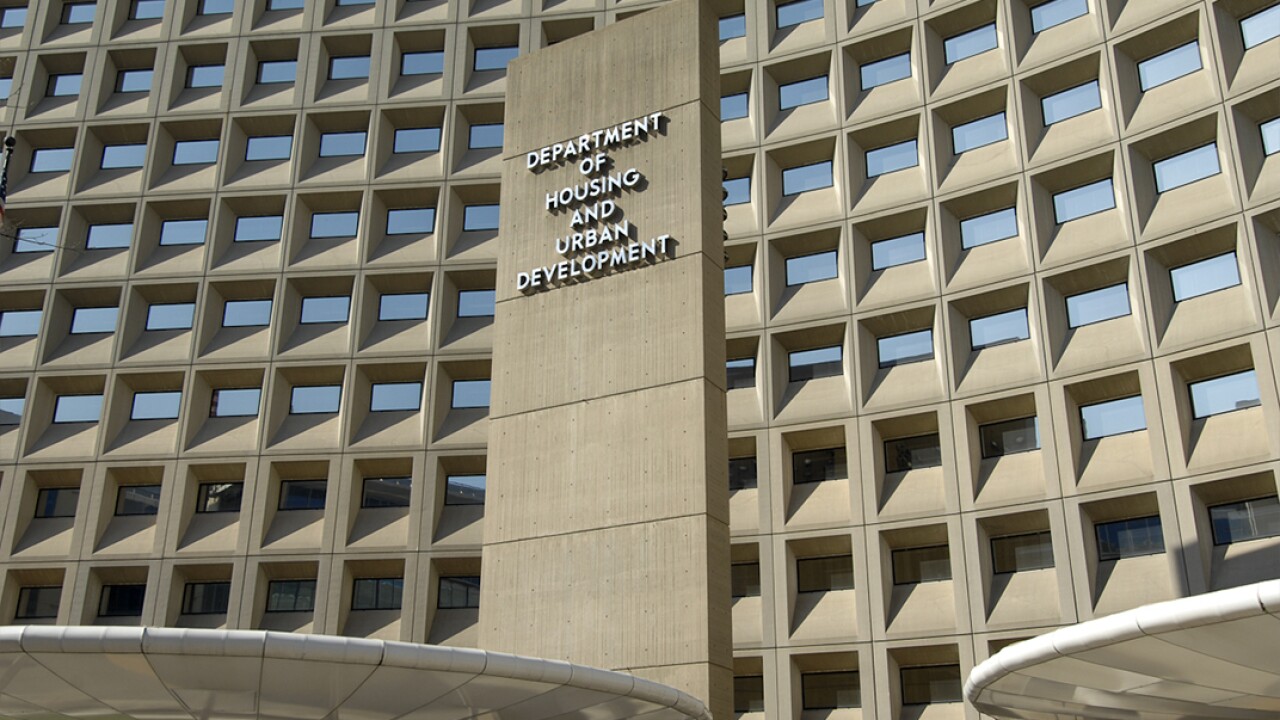The 2017 federal tax overhaul sharply reduced banks’ tax rates, but it also provided less incentive for banks to invest in affordable housing.
As banks’ tax bills have declined, the tax credits used by developers to build more affordable housing have simply become less attractive to banks.
Yet the supply of affordable rental properties continues to shrink, so now some lawmakers are proposing legislation that aims to renew banks’ interest in the tax credits and bring more affordable homes to markets that badly need them.
A bipartisan bill introduced earlier this month would increase the amount of tax credits available for housing developers to sell to investors, including banks. Key provisions from the proposal are expected to be offered up as part of a package to extend a slew of tax breaks the House Ways and Means Committee will soon consider, according to industry and affordable housing advocate groups.

“We’re very enthusiastic about this legislation,” said Buzz Roberts, CEO of the National Association of Affordable Housing Lenders, which advocates for banks, lenders, nonprofits and investors. “The bottom line is it would really expand the level of credit for affordable housing projects. That’s more business for our members.”
Developers usually sell low-income housing tax credits to banks and other investors in return for equity that can help build these apartments and houses with smaller amounts of debt. This allows them to charge lower rents. Between 1987 and 2015, nearly 46,000 projects and almost 3 million housing units have been built using the tax credits, according to a study last year by the Urban Institute.
Many banks rely on tax deductions to make their investments in affordable housing tax credits work financially. But with the corporate tax rate lowered from roughly 35% to 21%, banks have lowered the price they’re willing to pay for them. This reduces the amount of equity developers can get for their projects.
“There had been early reports of downward pressure on tax credit demand stemming from the 2017 tax revision,” according to a study published in February by the Congressional Research Service.
Two Democrats from Washington, Sen. Maria Cantwell and Rep. Suzan DelBene, have introduced a bill that would increase the amount of tax credits available to investors.
The bill has support of a number of Republicans, including Sen. Johnny Isakson of Georgia, Sen. Todd Young of Indiana, Rep. Kenny Marchant of Texas and Rep. Jackie Walorski of Indiana.
The bill would raise the amount of certain low-income housing tax credits states are allowed to give to developers by 50% —10% each year through the end of 2024.
It would also stabilize the pricing for the 4% credit rate used for bond financed projects, typically to refurbish existing homes. This tax credit rate is linked to Treasury bonds and is currently 3.25%. The bill would set a minimum rate at 4%, an estimated increase of 23% in equity for projects.
The bill is not expected to become law on its own, but could be attached to broader tax or spending bills.
Advancing the provisions through some legislative vehicle should, over the next 10 years, more than make up for the 232,300 potential projects that were estimated to have been lost when the corporate tax rate was slashed in 2017, according to Novogradac, a consultancy that counts state housing agencies and affordable housing developers among its clients.
An omnibus spending package Congress approved last year made up some of that ground with a provision that temporarily increased the amount of tax credits states can allocate each year by 12.5%.
Boosting those increases by 50% over the next five years as the new bill proposes would add an estimated 384,500 rental units by 2029, according to Novogradac.
Peter Lawrence, Novogradac's director of public policy and government relations, consulted banking groups as the bill was being drafted.
“They have all said there is tremendous demand for the housing credit,” Lawrence said.
There is a shortage of 7 million affordable homes in the U.S., according to the National Low Income Housing Coalition. Seven in 10 severely low-income Americans spend more than half of their pay on housing, the group estimates.
“Without affordable homes, these families are forced to make impossible trade-offs between paying rent and putting food on the table, visiting their doctor, or saving for a rainy day," said Diane Yentel, the CEO of the National Low Income Housing Coalition.
Should advocates for the bill not be able to attach the proposals to the tax extenders package, they are likely to move on to inserting them into legislation to raise the debt limit or a new omnibus spending deal late in the year, both Lawrence and Roberts said.





